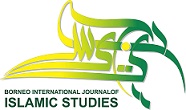Kurikulum Fikih dalam Bingkai Negara Kesatuan Republik Indonesia: Upaya Membangun Peradaban Islam berbasis NKRI
Abstract
Despite having a population that is predominantly Muslim, Indonesia is not an Islamic state; instead, it is a unitary state with different ethnic, tribal, cultural and religious views. Therefore, the awareness of Indonesian people toward the concept of plurality is instrumental in social life. This article attempts to discuss the need for a method in learning Islamic law that leads to the cognizance of the importance of plurality. By using content analysis method, this study focuses on finding learning methods of Islamic law within the framework of the Negara Kesatuan Republik Indonesia (NKRI, Unitary Republic of Indonesia). It finds that all textbooks on Islamic law taught at secondary schools have deficiencies in addressing Indonesian diversity in an inclusive manner. Hence, more reading materials that touches on issues of plurality in the interest of the state and nation are badly needed. The results of this study confirm that the plurality-sensitive Islamic jurisprudence (fiqh) can be implemented in two ways: first, through education; and second through reforming the body of fiqh itself. When the concept of fiqh is unresponsive toward the phenomenon of pluralism and human rights, then its manifestations by Muslims may also envisage this very own fiqh concept.
Keywords: contextuality of fiqh, Unitary Republic of Indonesia, plurality education in Indonesia
References
Afifi, al-Hadi, Muhammad, al-Tarbiyah wa al-Taghoyyur al-Tsaqafi, Kairo: Maktabah Angelo al-Mishriyyah, 1964
Ahyar, Muzayyin. “Ahmadiyah dalam Labirin Syariah dan Nasionalisme Ketuhanan Di Indonesia.” MAZAHIB 14, no. 2 (2015). https://journal.iain-samarinda.ac.id/index.php/mazahib/article/view/340.
Allen, Dougles, Structure and Creativity in Religion. The Houge the Netherlands: Mountan Publisher, 1978.
Arkoun, Mohammed, Islam Kontemporer: menuju Dialog antar agama, Yogyakarta: Pustaka Pelajar, 2001.
Azra, Azyumardi, Esai-esai Intelektual Muslim dan Pendidikan Islam, Tradisi dan Modernisme Menuju Milenium Baru, Jakarta: Logos Wacana Ilmu, 1998.
Barnadib, Imam, Filsafat Pendidikan: Sistem dan Metode, Yogyakarta, Andi Ofset, 1994.
Basri, Ghazali at al, An Integrated Education System In A Multifaith and Multi-Cultural Country, Malaysia: Muslim Yuth Movement Malaysia, 1991.
Basuki, Singgih, A., “Kesatuan dan Keragaman Agama Dalam Pandangan Hazrat Inayat Khan”, dalam Jurnal Penelitian Agama, Nomor 21, TH. VIII Januari-April, h. 151, 1999.
Darmaningtyas, Pendidikan Pada Dan Setelah Krisis, Yogyakarta: 1999.
Dawam, Ainurrofiq, Emoh Sekolah, Yogyakarta: Inspeal Ahimsa Karya Press. 2003
Dewey, John, Democracy and Education, New York: Macmillan, 1916.
Durkheim, E., Moral Education, New York: The Free Press. 1961
Effendy, Bachtiar, Masyarakat Agama dan Pluralisme Keagamaan, Yogyakarta: Galang Press, 2001.
Esack, Farid, Qur’an, Liberation, and Pluralism, terj. Watung A. Budiman, Bandung: Mizan, 2000.
Faruqi, Isma’il dan al-Faruqi, Lamnya, Lois, The Cultural Atlas of Islam, New York: Macmillan Publishing Company, 1986.
Hasan, Hamid, S., “Pendekatan Multikultural Untuk Penyempurnaan Kurikulum Nasional”, dalam Jurnal Pendidikan dan Kebudayaan, Jakarta, Edisi Bulan Januari-November, h. 510-524, 2000.
Hidayat, Komaruddin, Tragedi Raja Midas, Jakarta: Paramadina, 1998
Juergensmeyer, Mark. The New Cold War? Religious Nationalism Confronts the Secular State. University of California Press, 1993.
Khisbiyah, Yayah at al., “Mencari Pendidikan Yang Menghargai Pluralisme” dalam Membangun Masa Depan Anak-anak Kita, Yogyakarta: Kanisius, 2000.
Menchik, Jeremy. “Productive Intolerance: Godly Nationalism in Indonesia.” Comparative Studies in Society and History 56, no. 3 (July 2014): 591–621. doi:10.1017/S0010417514000267.
Mouw, Richard J and Griffon, Sander, Pluralism and Horizon, Grand Rapids: William B. Eerdmans Publishing Company, 1993.
Mulkhan, Munir, Abdul, Nalar Spritual Pendidikan, Yogyakarta: Tiara Wacana, 2002.
Sealy, John, Religious Education Philosophical Perspective, London: George Allen & Unwin. 1985.
Shihab, Alwi, Islam Inklusif, Bandung: Mizan, 1998.
Siradj, Aqiel, Said, Islam Kebangsaan: Fiqih Demokratik Kaum Santri, Jakarta: Pustaka Ciganjur, 1999.
Smith, W. C. Toward Theology: Faith and the Comparative History of Religion, London&Basingstoke: The Macmillan Press, 1981.
Sumartana at al., Pluralisme, Konflik, dan Pendidikan Agama di Indonesia, Yogyakarta: Pustaka Pelajar, 2001.
Tilar, H. A. R., Paradigma Baru Pendidikan Nasional, Jakarta: Rineka Cipta.A, 2000.


.png)






